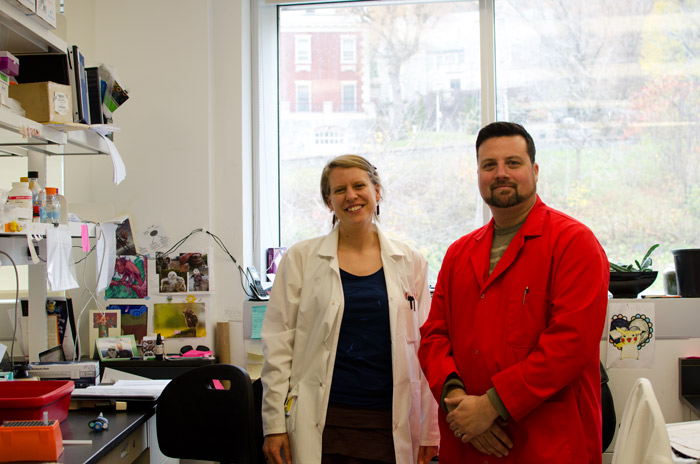Researchers from McGill University, in cooperation with the University of Bristol, Washington University in St. Louis, and ITMO University, have revealed an important alternative metabolic pathway used by cancer cells. The study, published in the journal Molecular Cell on Oct. 15, outlined the process by which cancer cells attempt to propagate in an environment lacking their primary nutrition source, glucose. The mutated cells activate the enzyme PEPCK, which can break down the amino acid glutamine to fuel certain metabolic and biosynthetic pathways.
“That’s part of why cancer’s so difficult to treat,” said Emma Vincent, lead author of the study and a McGill University research associate. “When we take away glucose, the cancer cell adapts and it’s able to keep proliferating,”
The team examined the presence of PEPCK in 30 lung tumour samples, and found that over half had elevated enzyme levels. According to Dr. Russell Jones, associate professor of physiology from the Goodman Cancer Research Centre at McGill, this means two things.
“[First of all,] this may be an important pathway in cancer, so we have to do more research to test that and develop therapeutics,” explained Jones. “The second thing is that, now we have a biomarker. We have an actual protein that would predict how the tumour would behave and so you can use this as a screening tool.”
Cancer occurs when the body’s cells begin growing and dividing at abnormally high rates. Cells that should die off due to mutations, which can be caused by a number of carcinogens such as radiation (UV), chemicals (tobacco), age, or injury, continue to replicate, sometimes forming tumours. Not all tumours are dangerous, however. A growth is only malignant when it spreads, or metastasizes in the body, otherwise it’s a benign tumour.
“It’s this metabolic flexibility, the ability to use different fuel sources that keep the engine going,” Jones said. “There are benign tumours that continue to proliferate and grow, but they’re sort of within an enclosed region and truly malignant cells can actually leave and grow elsewhere.”
Despite the diversity, resistance, and versatility of cancer, the human body has processes in place to defend itself from tumour development. DNA recognition and repair mechanisms are one of these defence against mutations. Another is the immune system, which can also identify and eliminate early fledgling tumours.
“The fact remains that the majority of people who develop cancer are older in age where you’ve had longer time to accumulate mutations that bypass the immune system,” Jones explained. “We have inherent mechanisms to keep everything in check. The challenge is when we have a cancer that is able to bypass all of those mechanisms. They’re the deadly ones.”
Currently, surgery to physically remove tumours, drug intervention, and radiation therapy are used to treat cancer; however, due to negative side effects of these types of treatments, researchers are constantly looking for new options. A study like this one points to the possibility of targeting enzymes like PEPCK, involved in cancer cell metabolism.
“If you know how the tumour adapts and you can take that option away from it by targeting the adaptation strategies then you’re limiting its options,” Vincent explained.
As new options for cancer prevention emerge, the chances for success with treatments increases.









